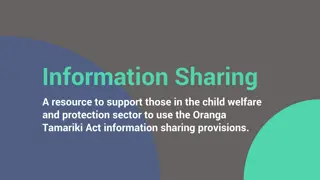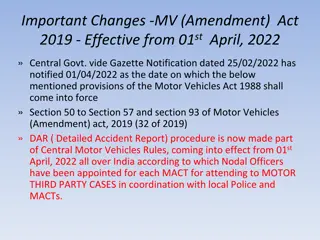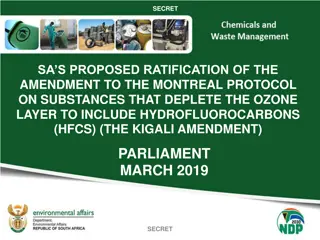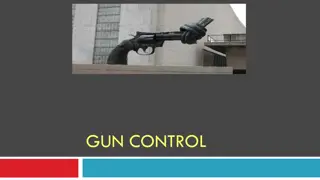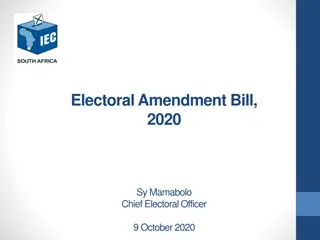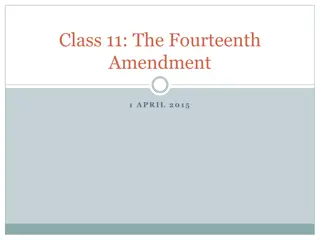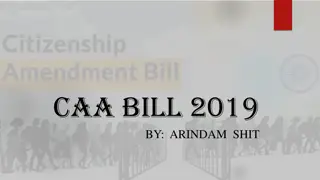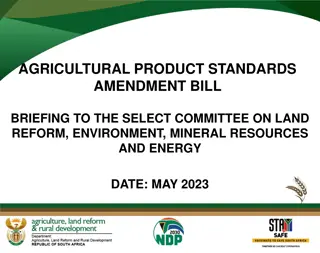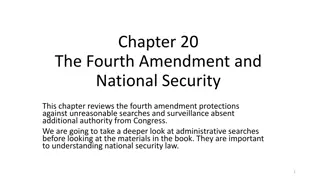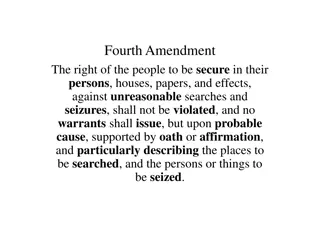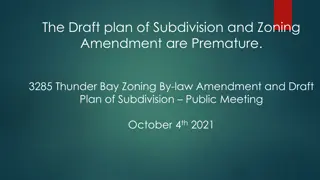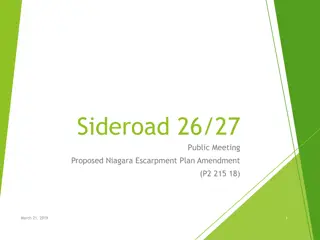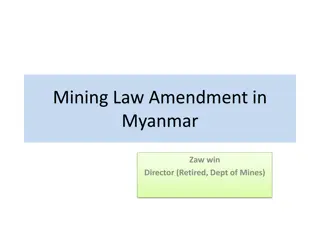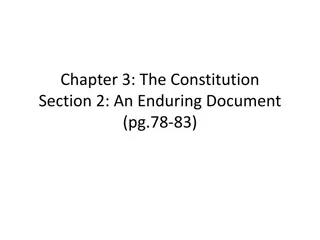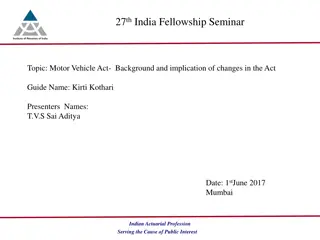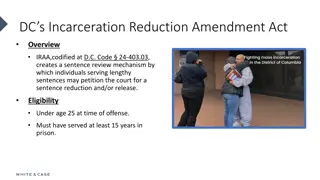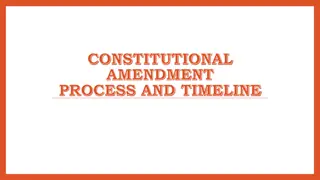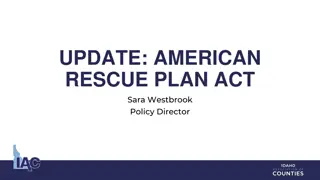Review and Amendment of Oranga Tamariki Act: Engaging Stakeholders for Positive Change
The Minister for Children is seeking advice on amending the Oranga Tamariki Act to align with the Government's Future Direction Plan, particularly focusing on residential care and youth justice. Matters under review include extending types of care, use of significant powers, appropriate detention authority, and other related issues. Stakeholder engagement is encouraged to address concerns and develop solutions for potential legislative changes.
Uploaded on Sep 13, 2024 | 0 Views
Download Presentation

Please find below an Image/Link to download the presentation.
The content on the website is provided AS IS for your information and personal use only. It may not be sold, licensed, or shared on other websites without obtaining consent from the author.If you encounter any issues during the download, it is possible that the publisher has removed the file from their server.
You are allowed to download the files provided on this website for personal or commercial use, subject to the condition that they are used lawfully. All files are the property of their respective owners.
The content on the website is provided AS IS for your information and personal use only. It may not be sold, licensed, or shared on other websites without obtaining consent from the author.
E N D
Presentation Transcript
UNCLASSIFIED Information Session Residential Care and Other Matters Amendment Bill
UNCLASSIFIED Purpose Describe the matters the Minister wishes to consider for potential amendment to the Oranga Tamariki Act. Explain how you can get involved.
UNCLASSIFIED Context The Minister for Children has asked for advice on amending the Oranga Tamariki Act 1989 to support the Government s Future Direction Plan for Oranga Tamariki. The Future Direction Plan calls for a new model of residential care. To realise that plan, the Government needs to amend the legislation that governs residential care, which applies to both care and protection and youth justice homes and residences. This may involve the repeal and replacement of the Oranga Tamariki (Residential Care) Regulations 1996. The Minister is also interested in exploring a number of other matters
UNCLASSIFIED Matters under review: Residential care Regulating extended types of residential care Regulating residential care environments, both youth justice and care and protection residences, and residences that are both formally established under s 364 of the Act and ones that aren t. Use of significant powers Reviewing the use of significant powers available to staff (such as the power to use force and search young people), including when and how these powers apply. Appropriate authority for detention Ensuring there is appropriate authority for the detention of children and young people (where appropriate), and reviewing the use of secure care in residences.
UNCLASSIFIED Other matters under review Remand Measures to reduce the number of young people who may be detained in custody pending their hearing; and the use of police cells in that regard. Laws applying to custody Clarifying the law applying to young people who are serving a custodial sentence in our youth justice residences under the adult jurisdiction. Care agreements Increased access to voluntary extended care agreements, especially for disabled young people. Review of special guardianship orders. Information sharing Reviewing the relationship between the information sharing provisions and the Treaty principles of the Act.
UNCLASSIFIED Aim for engagement To invite you to contribute to: determining the issues and problems to be addressed under each matter and developing solutions that can be reflected in the Bill.
UNCLASSIFIED Who can contribute? We welcome engagement from any individuals and organisations affected by the matters to be considered. We are seeking the views of: young people with residential care experience partners who are involved with all types of homes or residences providers or organisations who have experience with the residential care of disabled young people, especially those with intellectual disabilities iwi and M ori organisations who provide residential care (or may wish to do so in future) and partners or individuals with expertise in a te ao M ori approach to trauma-informed and therapeutic care for tamariki and rangatahi M ori.
UNCLASSIFIED What stuff can be changed? The problems and objectives for each matter. The options and recommendations to the Minister.
UNCLASSIFIED What stuff can t be changed The topics under consideration The matters that have been identified for potential amendment in the Bill. The topics not under consideration (probably) The matters that have not been included for potential amendment in the Bill.
UNCLASSIFIED How can you get involved Look out for further invitations. Come to online sessions exploring the matters that affect you. Provide feedback, either in the sessions or by email.
UNCLASSIFIED Next steps Online sessions on each matter July-August: identifying problems & objectives Sept-Oct: identifying options and recommendations
UNCLASSIFIED Any questions?
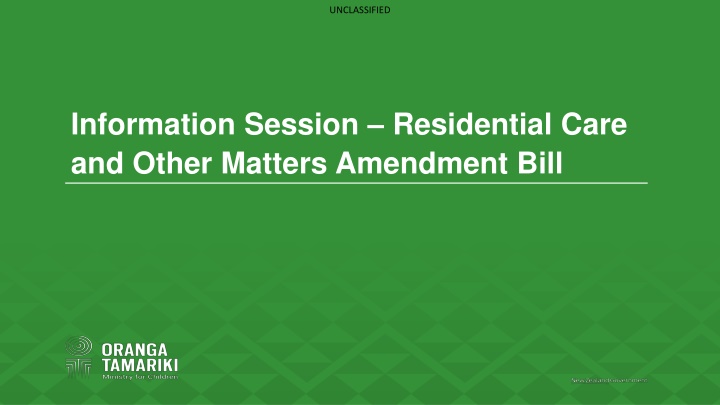

![RE: ELECTORAL MATTERS AMENDMENT BILL [ B42-2023]](/thumb/18837/re-electoral-matters-amendment-bill-b42-2023.jpg)


